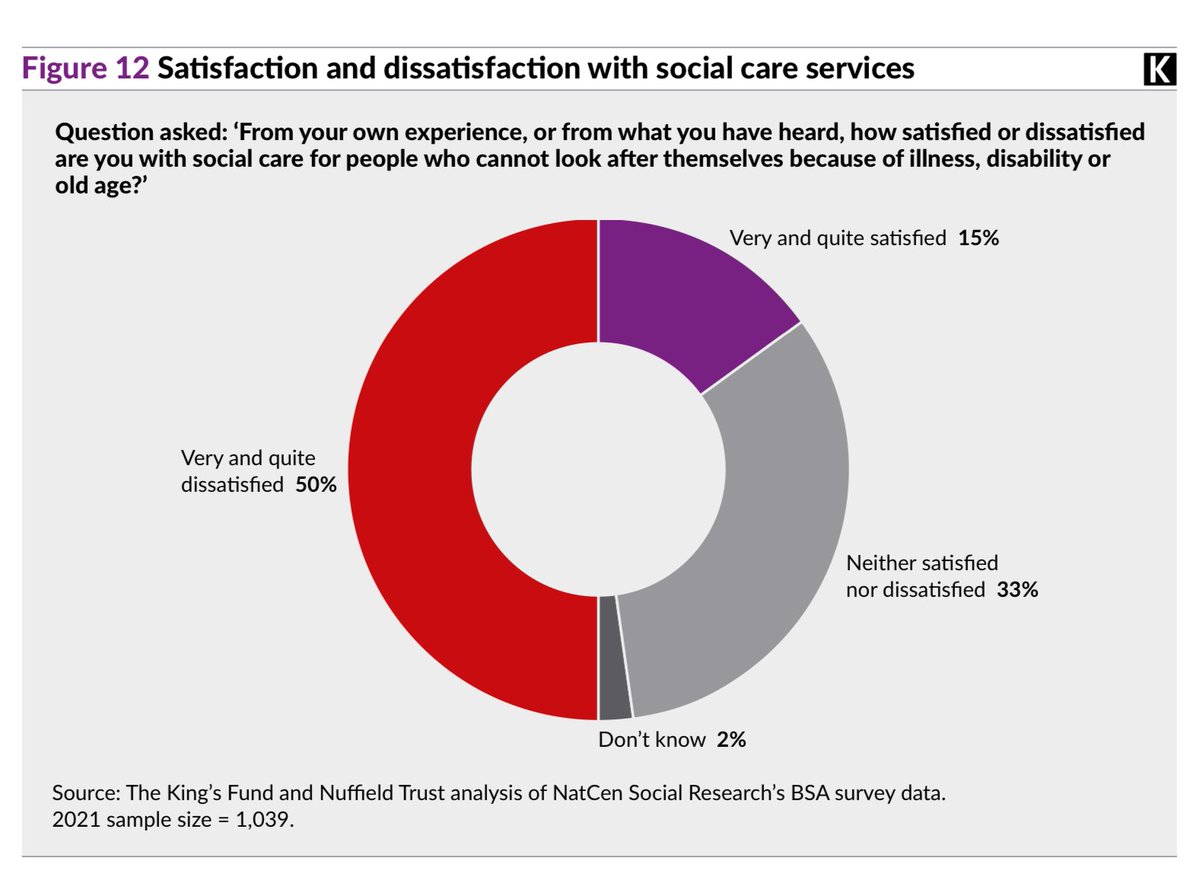
Lots of interest today in @TheKingsFund @NuffieldTrust findings about public satisfaction with the NHS. But the findings about #socialcare are no less remarkable. Only 15% say they are satisfied - the lowest of all services asked about. 50% are dissatisfied. A short thread… 

This year, the survey asked WHY people are satisfied (or not). The main reasons are staff pay, unmet need, unaffordability of #socialcare and lack of support for unpaid carers. Lack of integration between health and care also gets a look in. These are familiar problems… 

…and all grounded in fact: the number of people able to access long-term care has been falling since 2015/16, workforce pay has failed to keep pace with other sectors and 1 in 7 people are now estimated to face lifetime care costs of over £100,000. kingsfund.org.uk/publications/s…
Worryingly, people who know #socialcare the best rate it even worse. 14% people have had recent contact with #socialcare and two thirds of people them are dissatisfied, compared with 49% of people without recent contact. Again, that’s the lowest of all services asked about. 

It’s damning stuff, isn’t it? The government might say ‘that’s why we’re reforming #socialcare’. But the main reforms do little about staff pay, unmet need or unpaid carers. And even the cap - which does tackle lifetime costs - has been watered down. kingsfund.org.uk/blog/2022/03/c…
Perhaps that’s why another recent poll said - remarkably- that only 7% of people think the government has the right policies for #socialcare. health.org.uk/publications/l…
The response? The govt needs to double down on reform, reinstate the full cap and fund local authorities properly for the #socialcare services the public wants. Otherwise you doubt next year’s results will be much better.
Full survey details are here nuffieldtrust.org.uk/research/publi…
Full survey details are here nuffieldtrust.org.uk/research/publi…
• • •
Missing some Tweet in this thread? You can try to
force a refresh




